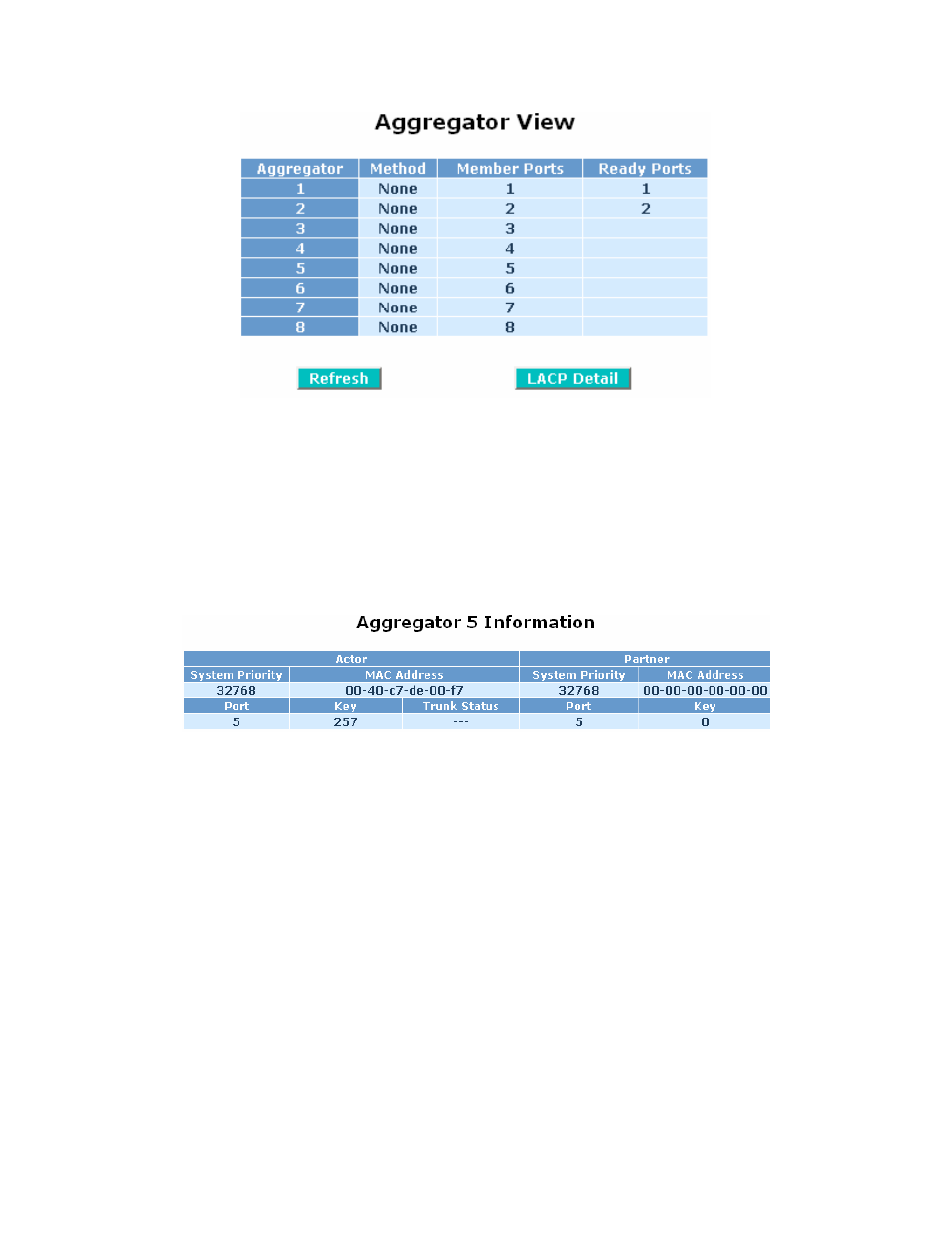System priority – Amer Networks SS2GD8I User Manual
Page 54

48
Figure 3-45: Aggregator View Page
Aggregator: Shows the aggregator ID (from 1 to 8) of each port, which is the same as the port number.
Method: Shows the method a port is using to aggregate with other ports.
Member Ports: Shows all of the member ports of an aggregator port.
Ready Ports: Shows only the ready member ports within an aggregator port.
Refresh: Refreshes the information on the screen.
LACP Detail: Clicking this will open a new window showing detailed information on the LACP trunking
group (Figure 3-46).
Figure 3-46: LACP Detail Page
Actor: The switch you are watching on.
Partner: The peer system.
System Priority: Shows the System Priority part of a system ID.
MAC Address: Shows the MAC Address part of a system ID.
Port: Shows the port number part of an LACP port ID.
Key: Shows the key value of the aggregator. The key value is determined by the LACP protocol entity
and can’t be set manually.
Trunk Status: Shows the trunk status of a single member port. ”---“ means “not ready”.
3.14.3 System
Priority
The System Priority page (Figure 3-47) is used to set the priority part of the LACP system ID. LACP will
only aggregate together the ports whose peer link partners are all on a single system. Each system
supporting LACP will be assigned a globally unique System Identifier for this purpose. A system ID is a
64-bit field comprising a 48-bit MAC Address and 16-bit priority value. The System Priority can be set
